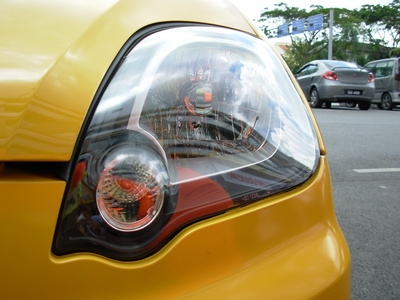
A battery is necessary for starting up a car. The battery is charged by the alternator while the car is running, storing up the electrical charge necessary to start up the car hours or even days after it was last used. A car battery that is dying will not hold a charge as well as it once did, and several warning signs will appear that indicate the battery is dying.
A dying car battery will cause problems with the car starting, especially after the car has sat without being driven for a few hours. If the car struggles to turn over, but then the engine starts up without a problem, the battery is likely the cause. When you start up a car's engine, the sole source for the spark that ignites the gasoline and air mixture in the engine comes from the car's battery. If the battery has an extremely low charge, there may be only a clicking noise when you try to start up the engine, but the car will not start.
Dimming headlights can indicate a dying battery. If you suspect your car battery is dying, you can try a test using the headlights. You will need two people for the test--one person starts up the car while the other person stands some distance in front of the car. This test works best when it is at least a little dark outside. Turn on the car's headlights while the other person checks how bright they are, then turn on the car. If the headlights fade while the car is being started or just after it has started, the battery is dying and needs to be serviced or replaced.
Another way to tell if the car battery is dying, without even starting the car, is to turn the key in the ignition until you can turn on electrical accessories such as the radio or power windows. If the battery is very low, some or all of the electrical accessories will be sluggish. The windows will roll up and down slower than normal, the radio may not be very loud, or the dashboard lights will be dim. If the electrical accessories do not come on at all, the battery is completely dead and needs to be charged or replaced.